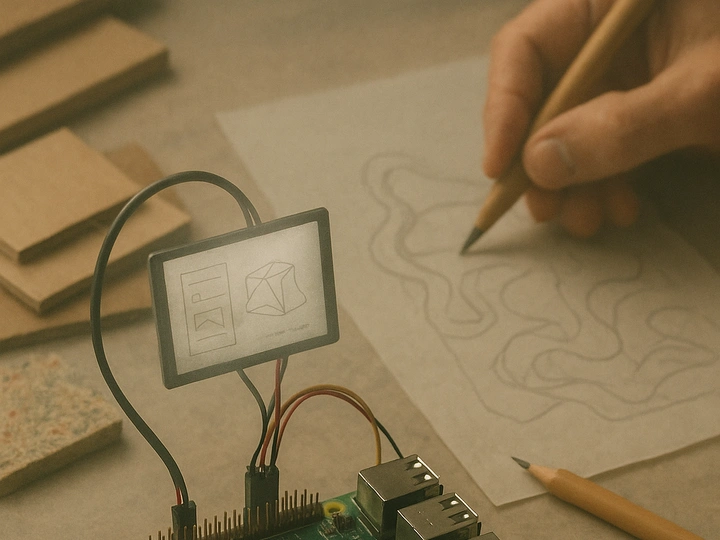AI as Co-Creator:Knowledge Space to Design Process

I am Dan Dorocic, a designer, educator, and co-founder of several collaborative architecture and design initiatives, including ON/OFF (onoff.cc), the QA (questionarch.com), and WORLD INFRA (studio-infra.com). My practice moves between experimental research, teaching, and built work, driven by a belief that architecture can be both a critical tool and a playful medium for collective exploration.
Through ON/OFF, I have focused on mobile and adaptive architecture—creating projects that can unfold, migrate, and disrupt static notions of urban space. Our work has ranged from temporary structures and installations to publishing and pedagogical workshops, including the co-authored book Co-Machines: Mobile Disruptive Architecture (Onomatopee, 2017), which examines collective and experimental approaches to the city. WORLD INFRA extends this experimentation into the realm of adaptive reuse and material innovation, using reclaimed and recycled resources to rethink how infrastructure is imagined and built.
Alongside these initiatives, I have worked on more traditional architectural projects, curated exhibitions, run workshops, and taught in architecture departments across Germany and Norway. Currently, I teach at the Berlin International University of Applied Sciences, where I guide students in developing new approaches to design education, blending hands-on making with conceptual thinking.
Across all these roles, I am committed to connecting architecture to broader cultural, ecological, and technological conversations—bridging academic research, on-the-ground experimentation, and collaborative practice to ask how we might build not just differently, but more thoughtfully.
This proposal explores how artificial intelligence (AI) might shift from being a tool of optimization to a co-creative partner in architectural and design practices—particularly in contexts of affordability and sustainability. While AI has often been used to streamline workflows or generate efficient forms, such approaches risk flattening the cultural, material, and social richness of design. This research instead argues for a post-optimization perspective, reframing AI as a collaborator within hybrid knowledge spaces—environments where human intuition, material feedback, and algorithmic suggestion intersect.
The project deploys low-cost large language models (LLMs) hosted on Raspberry Pi 5 (raspi5) microcomputers to support participatory design workshops. These compact, energy-efficient devices make AI accessible in resource-limited settings and give the technology a tangible, repairable presence—turning AI from an abstract system into a visible, material collaborator.
Rather than treating AI outputs as final solutions, the work frames them as provocations—ideas to be tested against real-world constraints and adapted collectively. In early workshops, raspi5-hosted LLMs generated housing and design concepts that often failed when translated into physical models. These “failures” proved instructive, sparking dialogue around sustainability, ethics, and authorship while revealing the limits of digital abstraction.
Grounded in critical AI studies, design anthropology, and post-digital theory, this proposal positions AI not as a neutral tool but as a co-creator whose logic must be engaged, resisted, and redirected. By embedding affordable, low-power AI devices into collaborative design processes, the research asks how hybrid intelligences—human, machine, and material—can enable more situated, plural, and sustainable approaches to design in the face of urgent environmental and social challenges.